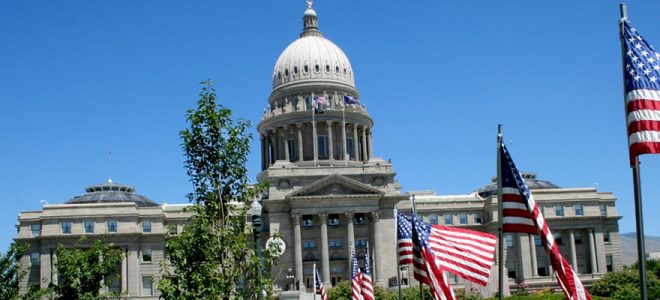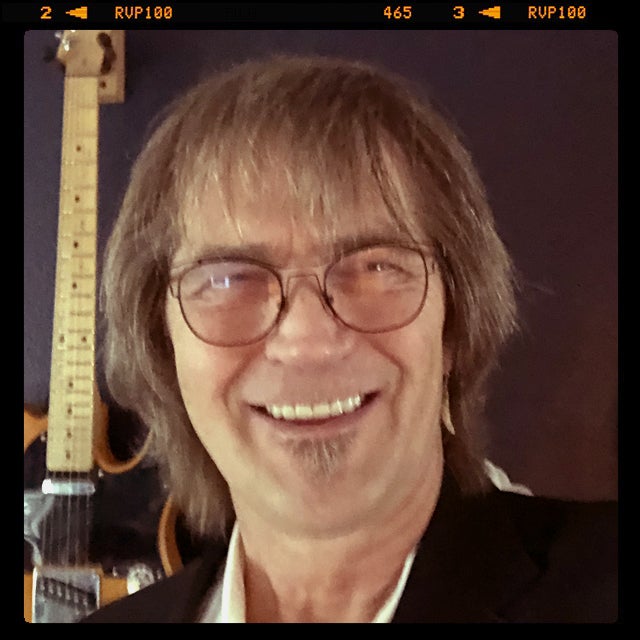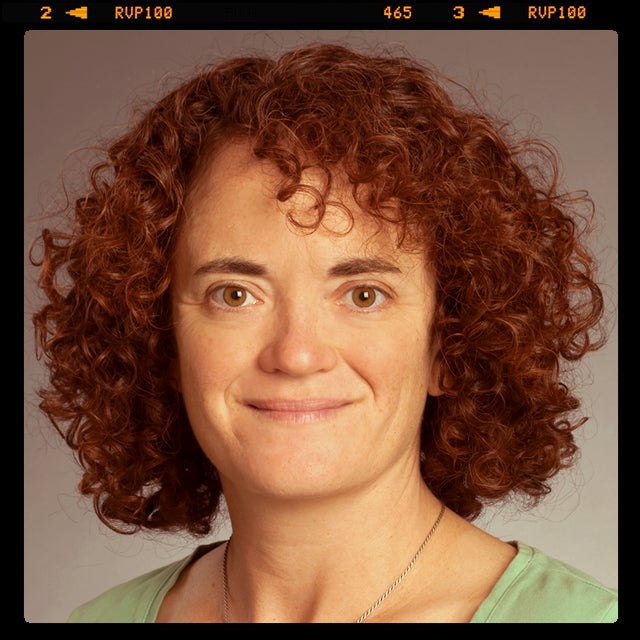

David Gabbard is Professor of Education in the Department of Curriculum, Instruction, and Foundational Studies at Boise State University in Boise, Idaho. He is also the Director of Research & Pedagogy with the Zizekian Institute for Research, Inquiry, and Pedagogy. He is currently engaged in designing the Collective Learning Project as a response to Slavoj Zizek’s call for a Positive Universal Project (the Transnational Leitkultur [leading culture] Project).

Sara Winstead Fry is Professor of Education in the Department of Curriculum, Instruction, and Foundational Studies at Boise State University in Boise, Idaho. Her scholarly interests include service-learning and citizenship education. She teaches courses in civic and ethical foundations and social studies methods.
Patriotic speeches seem to always frame their references to the U.S. Constitution in terms of the freedom and liberties we enjoy as American citizens. Seldom, if ever, do they ask us to take seriously the responsibilities of citizenship. Civility, however, begins there, in recognizing citizenship (civitas) as a moral imperative to uphold our responsibilities to our contemporaries and future generations (the collective other) in the collective governance of society to preserve or enhance the common good.
The Idaho Civil Conversations Network (ICCN) grew out of our concern for the growing pattern of incivility we witness in the world today. In our view, each individual episode of incivility appears as a symptom of some deeper underlying conflict that, through our collective civic failure, we allow to polarize us and set us against our neighbors. Many of us actively participate in this polarization as we demonize and wage meme wars against our opponents within the self-affirming security of our echo chambers on the ironically named “social media.” Ultimately, the hostilities destroy our capacity to even talk with one another. The longer we allow these conditions to persist, the longer we should hold ourselves culpable for reproducing them.
The challenge of ICCN, and the civic challenge of our times, lies in changing those conditions by offering all residents of the Treasure Valley the opportunity to be part of a positive local initiative that gives us all a chance to strengthen our ability to participate in civil discourse – especially when we disagree. At the heart of our ICCN initiative is the idea that civility is a virtue demonstrated through our performance of our civic responsibilities as citizens in service to the common good. We offer an invitation to participate in this initiative, and, first, background information about civility and collective learning.
CIVILITY AND COLLECTIVE LEARNING
Civility draws upon our innate human capacity for cooperation and collaboration. We need to appreciate this capacity as an adaptive one. That is, we need to understand how cooperation has enabled us, as a species, to adapt to the physical world around us and adapt the world to us. Think of how much the landscape of the Treasure Valley has changed since the appearance of the first American/European immigrants. We see this capacity manifested in the physical infrastructure of our buildings, roads, water system, electrical grid, and cell towers. How much cooperation did each of these elements require? How much cooperation do they require for their maintenance?
More fundamentally, we need to appreciate how cooperation depends on our capacity for collective learning, including our capacity for symbolic thought requisite to any language, culture, or civilization. Our ability to produce, store, and share knowledge began with speech in direct face-to-face contact with others. As with any technological innovation, the invention of written language enhanced collective learning in many ways and detracted from it in others. While allowing for a greater sharing of knowledge across space and time, the written text physically separates a writer from a reader. We lost the immediacy of the direct encounter with another. Gutenberg’s press expanded our capacities for collective learning dramatically, and the internet has expanded them more. It is a sad irony, then, that in spite of the tremendous increase in our means for collective learning and, consequently, our means for cooperation, we have co-created a world in which we can’t even talk with each other. Reconnecting with our shared history as a species who has progressed through collective learning reminds that we have the ability to come together.
As a positive local project, the ICCN begins by bringing members of our community back into personal, face-to-face contact.As a positive local project, the ICCN begins by bringing members of our community back into personal, face-to-face contact. Inspired by the work begun by Amanda Kathryn Roman and Joan Blades in 2012, we want to invite all residents of the Treasure Valley to participate in a series of Living Room Conversations around the issues that polarize and paralyze us from resolving the conflicts they create.
A POSITIVE LOCAL PROJECT AGAINST DOUBLE-BLACKMAIL
ICCN’s first series of conversations will focus on the issue of refugee resettlement and the broader issue of national immigration policy. There is a pressing need for such conversations as Boise is experiencing unprecedented growth. With rapid growth come abundant opportunities – and new challenges and the potential to exacerbate existing challenges, including how we as a community respond to those who arrive in our community as immigrants and resettled refugees.
According to Melanie Nezer of the Hebrew Immigrant Aid Society, approximately 15.3 million people share official recognition as refugees in the world today. This includes only those who have been so identified through the UNCHR’s Refugee Status Determination (RSD) process. Under these policies, a person only qualifies as a refugee if they have been forced to flee their country because of persecution, war, or violence. Seeking a brighter economic future does not qualify one as a refugee, though many go through legal channels to immigrate to the United States and other countries for economic or other personal reasons, and many of these people go on to earn a Permanent Resident Alien card (the Green Card) and sometimes full citizenship. Still others enter into the United States in search of economic security without going through those same legal channels, which places them in a vulnerable position when the government acts to enforce its own immigration laws.
Tensions abound regarding refugee resettlement and immigration policy. Though Slavoj Zizek’s work focuses on the migrant crisis in Europe, we attribute those tensions to a polarizing partisanship that Zizek describes as a “double blackmail.” On one side, we find those who oppose the resettlement of refugees and immigrants. On the other side, we find supporters of what amounts to an open border policy. We need to learn how to listen to and learn from each other across our differences. It is essential to keep in mind that “the art here is to find the right middle way between following the desires of the refugees [and immigrants] (taking into account their wish to move to countries where they already have relatives, etc.) and the capacities of different countries to accommodate them,” if we are to have any hope of escaping our current double blackmail.
The ICCN rests on the belief that we – the people of Idaho – have the inherent ability to escape double blackmail. Civil conversations that help us hear one another despite differences are the logical starting point. We come from a position of strength; the people of Boise and the civic infrastructure we have built to respond to the influx of refugees with welcome and aid has received international recognition over the years. In March of 2016, a group from seven member countries of the European Union chose Boise and three other U.S. cities as model resettlement communities whose success they wished to learn from. In January of 2017, the Boise City Council unanimously passed a resolution declaring Boise as a “Welcoming City.”
Our community has created a strong civic infrastructure in the midst of a larger landscape that is wrought with tension. While President Trump’s temporary restrictions on U.S. participation in the United Nations’ program for refugees has reduced the demand for services from the agencies forming the network of Boise’s civic infrastructure, the debate over our national refugee policy and immigration policy more generally continues. Governor Otter was the lone governor to join with 10 state attorneys general in writing a letter to President Trump threatening to sue the federal government on the grounds that the executive branch lacked the Constitutional authority to change federal laws of any kind, including our federal immigration laws. President Obama, however, had done just that when he wrote a memo to establish Deferred Action for Childhood Arrivals (DACA) as a policy to defer the deportation of the children of people who had entered the country illegally.
Congressman Raul Labrador supported Trump’s call to strengthen U.S. immigration laws and their enforcement by joining three other members of Congress in introducing H.R. 4760, the Securing America’s Future Act, which is legislation that would, in Labrador’s own words, “modernize America’s immigration system, enacting conservative reforms that will make our nation strong. These reforms,” he adds, “include authorizing funding for the border wall, stronger interior enforcement, mandatory E-Verify, and ending chain migration and the diversity visa lottery.” In his bid for the nomination to become the Republican candidate for Idaho’s gubernatorial elections in November, Congressman Labrador also boasted about numerous other legislative efforts he has made toward “modernizing” national immigration laws.
Top down solutions seem slow to come, given the polarized national political landscape. As William Kamkwamba, author of The Boy Who Harnessed the Wind, put it, “It’s not a good idea to wait for government to fix our problems. We need to fix it ourselves. It will take much less time than the government pace.” It is time for bottom-up solutions, and the starting point is positive local projects like ICCN.
THE INVITATION: ICCN AND LIVING ROOM CONVERSATIONS
It is clear that immigration and refugee resettlement can be divisive. We’re not afraid to discuss difficult topics, and we’re committed to doing so in a civil manner. We have a student group at Boise State who pioneered an approach to civil conversations, the Boise State Civility Research Network. They hosted a series of civil conversations from March-May 2018 and will resume offering events in August, with a focus on refugee resettlement and the broader issue of national immigration policy.
Whatever empathy we hold for these displaced peoples should stem from our consideration of the following questions: What conditions would cause you to flee your own country? How bad would things have to become for you? What created the conditions that led these people to seek refuge beyond their own borders? Only after answering these questions for ourselves can we properly address the moral question of what response we should give, not only to those who have relocated their lives to the United States, but also to their conditions and the forces that created those conditions. Those forces always result from some antagonism or conflict. At a physical or material level, for example, we find ourselves in conflict with the same biosphere that simultaneously supports all life, including our own. We cannot allow ourselves to forget that we were once easy prey for lions, and tigers, and bears. They posed threats to us, particularly at night. Volcanoes, earthquakes, floods, droughts, and blizzards continue to pose threats to us, and many natural disasters drive people to seek refuge. How prepared are we for the refugees likely to result from the effects of global climate change?
Other forces stemming from interspecies or social antagonisms provoke violence and war. How many refugees in the world today had to flee their homes because of how they were being treated by other human beings? Who are the ones provoking those wars? Why do they do it? What motivates them? How should we receive those made refugees by these acts and the threats they pose? What can be done to shut down these wars?
While the strengths of Boise’s civic infrastructure have garnered us international recognition as a model refugee resettlement community, the ICCN seeks to use civil discourse to help us open our hearts to ease the remaining tensions surrounding immigration issues in our area. “Using heart in its original meaning not merely as the seat of the emotions but as the core of our sense of self,” Parker Palmer described two ways in which we might visualize how politics can break our hearts. On the one hand, politics can break our hearts into “a thousand shards that sometimes become shrapnel aimed at the source of our pain.” Typically, that means anyone we disagree with. On the other hand, Palmer instructs us that we can also visualize the heart as being like a “clenched fist.” While clenched, it can hold nothing. When we let go of the tension keeping it closed, the heart can “break open, not apart [helping] us hold our differences creatively and use our power courageously for the sake of a more equitable, just, and compassionate world.”
Please join us in breaking open hearts. A first step is completing this survey about civility and signing up for updates.